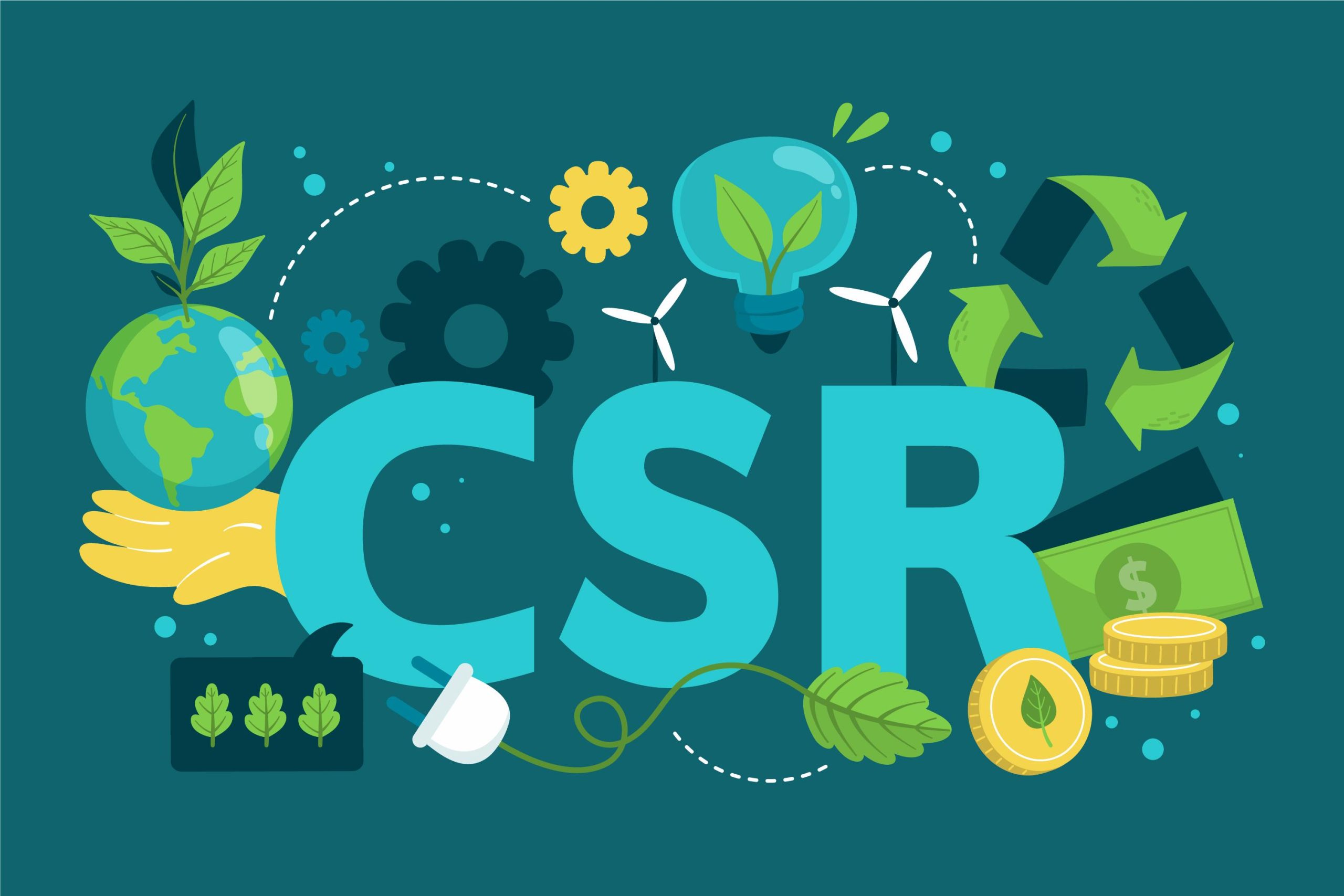Plenty of business leaders have realized in recent years that their duties go beyond only maximizing profits for shareholders and executives. Instead, they have a moral obligation to act in a way that benefits not just their businesses but also people, the environment, and the social Responsibility in business as a whole.
The rise of businesses that pride themselves on being socially responsible is the result of this realization. Businesses, from Industries to the IT sector and beyond, look for methods to accept accountability for their impact on society and the environment.
What is CSR and what are its various forms, why do they are important, and how can businesses successfully adopt CSR initiatives? Let’s Jump in
What is Corporate Social Responsibility?
Corporate social responsibility (CSR) is a company strategy created to achieve particular objectives regarding morality, sustainability, and social effect. When executed correctly, it can enhance how people interact and see your business, helping to promote the bigger goal of your organization. ESG can also be thought of as having its roots in CSR.
Businesses self-regulate and adhere to sustainable practices to enhance society. The CSR strategy’s efforts can then be lined and adjusted to match ESG measures. Then, through ESG reports, ESG data can be shared and made publicly available.
What are the Types of Corporate social responsibilities?
Environmental, Philanthropic, ethical, and economic responsibility are the classic divisions of corporate social responsibility. Let us read about them in detail
Types of Corporate Social Responsibilities: Environmental Responsibility
The concept of environmental responsibility holds that companies should act in a way that is as environmentally friendly as practical. One of the most widespread examples of corporate social responsibility is this. The phrase “environmental stewardship” is sometimes used by businesses to describe these programs.
There are numerous ways for businesses to adopt environmental responsibility:
- Reducing hazardous habits including consuming less water, lessening water pollution, cutting back on single-use plastics, and general waste
- Increased dependence on sustainable resources, recycled materials, and renewable energy sources to control energy usage
- Lowering harmful environmental effects, such as by financing research, planting trees, and making donations to organizations that support similar causes.
Types of Corporate Social Responsibilities: Ethical Responsibility

A component of carrying out ethical responsibility is ensuring that a business is operated fairly and ethically. When an organization embraces ethical responsibility, it aspires to act ethically by treating all parties fairly, including the leadership, investors, employees, suppliers, and buyers.
Below are examples of ethical duty.
- Providing a safe workplace and treating employees equitably
- Ensuring that partners and suppliers follow moral principles.
- Using ethical and transparent business practices.
Types of Corporate Social Responsibilities: Philanthropic Responsibility
A company’s purpose in performing its philanthropic duty is to actively better society and the environment.
The following are some instances of philanthropic responsibility:
- Backing volunteer initiatives for employees.
- Supporting initiatives and events in the community.
- Establishing a business trust or foundation.
Types of Corporate Social Responsibilities: Economic Responsibility
Economic responsibility is the practice of a company supporting all of its financial decisions with its dedication to acting ethically in the aforementioned areas. Making sure that corporate operations have a beneficial influence on the environment, people, and society is the ultimate goal rather than just maximizing profits.
Some examples of economic responsibility are
- Investing in local communities through supporting economic development programs example of economic responsibility.
- Sourcing goods and services locally to support small and neighborhood businesses.
- Donating to philanthropic causes.
What are the benefits of Corporate Social Responsibility in business?

It can gain from incorporating CSR into its strategies in the following ways.
- Reputation improvement: CSR raises a company’s standing, which promotes brand loyalty, customer happiness, and eventually higher sales.
- Talent acquisition and retention: CSR activities aid in the recruitment and retention of workers who respect social responsibility and the company’s mission.
- Ties with stakeholders are strengthened when a company is devoted to CSR. This includes collaboration with investors, customers, suppliers, and the community.
- Risk reduction: CSR assists businesses in identifying and reducing business model-related risks, such as environmental and social hazards that can have an impact on their day-to-day operations and bottom line.
- Sustainable growth: In the long run, the company and society profit by promoting environmental and social sustainability.
- Innovation is fueled by CSR, which pushes businesses to create new goods and services that are socially or ecologically responsible.
- Cost savings: Companies may experience cost savings as a consequence of CSR programs that reduce waste, energy use, and water usage.
Why is CSR an important aspect of the ESG Rating of a company?
Corporate Social Responsibility (CSR) in business, which goes beyond financial success to show how dedicated an organization is to social and environmental issues, is crucial in the context of ESG (Environmental, Social, and Governance). in addition, CSR programs highlight ethical company conduct that addresses societal issues, builds stakeholder trust, and promotes sustainable development.
Takeaway
Your company will continue to be relevant in the eyes of the public with the aid of socially conscious business practices. Your ability to draw in talent, keep customers, and conduct business internationally will all benefit from this.
At SalesGush, we are aware of the importance of CSR within the broader framework of ESG. Our expert team can assist your organization in implementing successful CSR programs that support your ESG objectives and align with your organization’s values.
Let’s make a difference, create long-term success, and open the door to a better future together. Also, to learn how our knowledge and relationship may help you on your path to ESG excellence and social responsibility, get in touch with us right now. We can create a more wealthy and sustainable world by working together.

